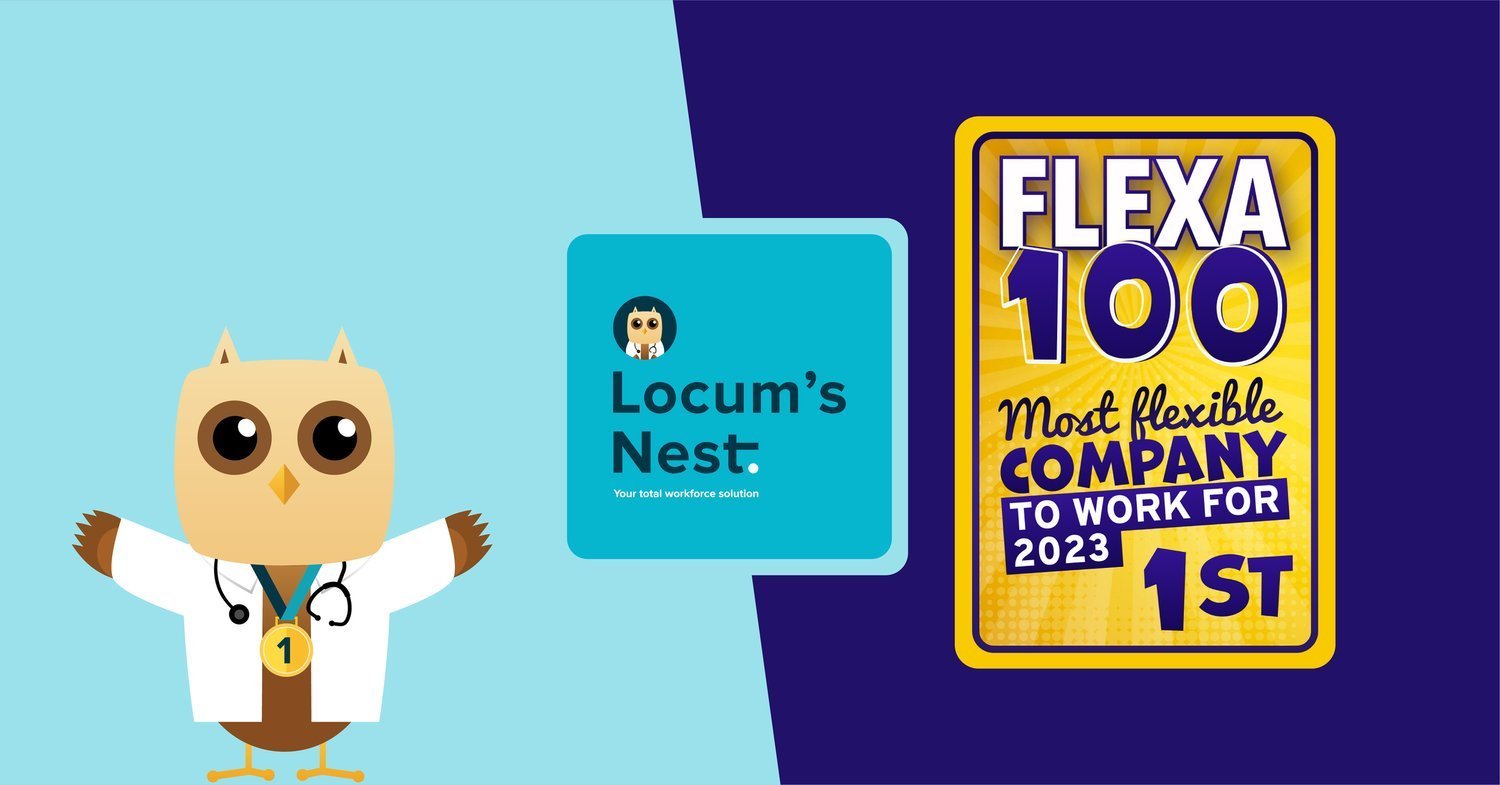Flexa100: Driving Workforce Flexibility In The NHS And Within Our Company
Dr Nicholas Andreou,
Co-Founder at Locum’s Nest
At Locum’s Nest, we believe that when people can work flexibly, they can stay in the jobs they love for longer; which is why we’re driven to transform flexible working in the NHS for over 50,000 healthcare professionals, using our workforce technology solutions. Of course, none of this would be possible without an internal culture of trust, autonomy, and flexibility for our colleagues, which is why we are delighted to have won the Flexa100 awards for 2023, ranking as number 1! Flexa100 ranks the top 100 most flexible companies to work for and we are very excited to make it to the list this year, reinforcing our commitment to flexible working.
In 2020, the NHS placed a strong emphasis on flexibility in the NHS People Plan, including better working patterns and training opportunities. This is a necessary solution to the ongoing issue of attracting and retaining healthcare talent in the NHS at a time where many staff are considering leaving their organisations and the NHS altogether, and a large proportion of employees do not have a choice in how they work. According to recent data from Lucina Rolewicz, a researcher at Nuffield Trust, the number of NHS staff leaving their role due to work-life balance is over 4.2x higher now than it was 10 years ago. This is often due to inflexible scheduling, which can lead to overworking, burnout, and a high staff turnover rate. However, for the plan to succeed, all organisations in the UK must prioritise flexible working.
To address this issue, flexibility must be better integrated into all workforce management technology in the NHS such as but not limited to e-rostering and shift management/matching. Solutions should not treat workers as a series of spreadsheet outcomes and better prioritise their wellbeing and work-life balance, empowering them in the process too. This not only benefits NHS staff across the board but also improves patient care and service delivery.
Over the last two years with an open bank-first approach top of mind, hundreds of thousands of shifts were published by our partner NHS trusts using the Locum’s Nest ecosystem, out of which nearly 90% of shifts were planned and published in advance. Our tech solutions are built on collaborative rostering and matching processes, which allow for the creation of flexible schedules that consider both patient and staff needs, and allows for easy shift-swapping and real-time compliance. All healthcare professionals can trust that their availability and preferences will be taken into account in the scheduling process and on the other end have full visibility over shifts. On one hand, healthcare professionals can better plan their lives and on the other, hospital Managers are enabled to better plan their rotas meaning fewer last-minute struggles to fill gaps. This will also improve financial planning & accrual processes, relieving pressures on teams across the board and helping hit targets
Embedding flexibility within workplace systems and plans accounts for real-life scenarios and helps build resilience into systems and teams. We are very excited to support the flexible working agenda, and rank No.1 in the Flexa100 with other businesses shaping the future of work.
___
Tell us about your organisation’s journey towards flexible working. Are there any particular goals or challenges you are facing? Talk to us about implementing workforce flexibility by booking a call with our team or contact meena@locumsnest.co.uk.

